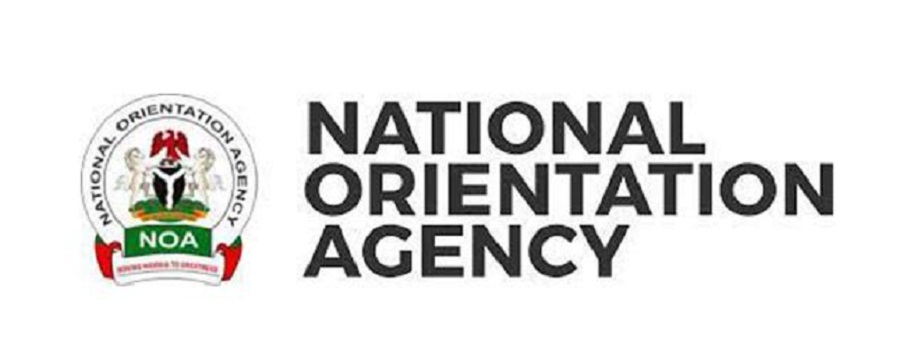News
DHL Nigeria Certified as Top Employer 2022

DHL Global Forwarding, Freight the air, ocean and road freight specialist division of Deutsche Post DHL Group, has been certified as a Top Employer 2022 by the Top Employer Institute. The certification recognises DHL’s extensive efforts to create a positive, safe and encouraging workplace for its employees.

Globally, DHL Global Forwarding, Freight has been recognized as a Top Employer in 40 countries, and therefore also receives certification as Top Employer Global 2022, Top Employer Asia Pacific 2022, Top Employer North America 2022, Top Employer Africa 2022, Top Employer Europe 2022, and Top Employer Middle East 2022.
“Our guiding principle ‘Connecting People. Improving Lives,’ is not limited to the work for our clients but applies equally to our employees. The certification confirms our best-in-class efforts to attract and retain talent through lifelong learning offerings, a flexible work environment and our diverse and inclusive company culture,” says Harm Otten,
Global Head of HR, DHL Global Forwarding, Freight. “We achieved outstanding scores in the topics of Business Strategy, Ethics, Integrity and Values, and Leadership which reinforces the organisation’s message and goal of being the best team of motivated and respected Freight Forwarding Experts.”
The Top Employer Institute rates companies based on its HR Best Practices Survey. The survey covers six areas that represent key HR topics: Steer, Shape, Attract, Develop, Engage and Unite. With its numerous employee initiatives, DHL Global Forwarding, Freight covers all these areas in its HR activities, to create an encouraging, positive working environment.
For example, DHL offers its employees a wide range of training opportunities with internal training in the areas of logistics, management and process improvement. One recent employee engagement initiative is called “Well-being at DHL Global Forwarding, Freight”.
The program examines how employees’ tasks, expectations, stress levels, and work environment affect their overall health and satisfaction. DHL Global Forwarding, Freight has linked all these possible engagements under the term “well-being” in three ways: Be social, be present, and be active.
“We are a people business, and every success that we have comes from our employees, so we are very proud to be recognised as a Top Employer once again. The award acknowledges the many ways we create a positive work environment for our employees and provide them with the support they need,” says Maureen Adibuah Country Manager at DHL Global Forwarding Nigeria.
“For example, the roll-out of our Smart Connect App to all employees, further promotion of our Leadership Attributes, new modules under Certified, and Diversity and Inclusion initiatives complemented our focus on well-being and gave our employees a safe place to work where everyone is welcomed.”
Across the organisation, employees can also acquire internationally acknowledged qualifications, move to other areas of the business and even other countries. The rich cultural diversity this produces is evident every year during DHL Global Diversity & Inclusion Week, when thousands of employees from all areas of the company take the time to celebrate their culture and share it with colleagues.
To celebrate diversity and inclusion, DHL has also supported establishing an internal company network called RainbowNet, which provides a platform for LGBTQIA+ employees to share their experiences. The network has members worldwide and supports employees and managers on all issues related to coming out at work.
The Group is also proud to support numerous programs designed to support and inspire female employees, from networking events to career program and talent pools. The Women at DHL Global Forwarding, Freight initiative won the Gold Award at the internationally renowned Stevie Awards for Women in Business.
News
NOA Uncovers Fraud by Banks, Universities in Students Loan Scheme

National Orientation Agency (NOA) has revealed that an investigation by its Community Orientation and Mobilisation Officers (COMO) uncovered unethical practices by some tertiary institutions, in collaboration with certain banks, that are depriving students of their rightful access to the Federal Government Student Loan Fund.

Paul Odenyi, deputy director of Communications and Media, in a statement Sunday, disclosed that several universities and financial institutions have been found engaging in fraudulent activities that prevent students from receiving the loans allocated to them.
Mallam Lanre Issa-Onilu, director general, NOA, shared these troubling findings following a high-level meeting with Mr. Akintunde Sawyerr, managing director, Nigeria Education Loan Fund (NELFUND), over the weekend.
According to NOA, preliminary reports led to an urgent intervention from NELFUND after it was discovered that some university officials had deliberately withheld critical details about student loan disbursements.
Further feedback from NOA confirmed that certain institutions, in collusion with banks, have intentionally delayed payments to approved applicants for dubious financial gain.
Additionally, some universities do not acknowledge the disbursements made by NELFUND to students.
Sawyerr confirmed that certain institutions have withheld information about loan payments issued in students’ names while still demanding tuition fees from them.
He warned that NELFUND is ready to take legal action against institutions found guilty of engaging in fraudulent practices.
He stated, “Recent findings by NELFUND have shown that some institutions have received student loan disbursements directly into their accounts yet neglect to inform the affected students or record the payments in their financial records, leading to unnecessary confusion.
“Withholding critical financial information from students is not only unethical but also a breach of the principles on which NELFUND was founded.
“We are prepared to take legal action against any institution engaged in such deceptive practices.”
The investigation revealed that in some instances, universities continued to demand full tuition payments from students, despite having already received the loan funds intended to cover those fees.
According to the NOA, this constitutes a gross violation of student rights and a betrayal of public trust.
Issa-Onilu, therefore, issued a strong warning to the institutions and collaborating financial institutions, demanding an immediate end to these actions.
He also directed all NOA state directorates to intensify feedback collection from students nationwide to aid the Federal Government in identifying and penalising the erring parties.
The NOA emphasised its commitment to transparency, accountability, and ensuring that students benefit fully from the government’s intervention in education financing.
The statement added that the investigation remains ongoing, and further actions are expected in the coming weeks.
General News
Nigeria Records $6.83Bn Balance of Payments Surplus in 2024 Amid Economic Reforms

Central Bank of Nigeria (CBN) has announced a remarkable $6.83 billion balance of payments surplus for 2024, marking a decisive turnaround from deficits of $3.34 billion in 2023 and $3.32 billion in 2022.

This achievement reflects the impact of sweeping macroeconomic reforms, stronger trade dynamics, and renewed investor confidence in the nation’s economic direction.
Speaking at the 36th Enugu International Trade Fair, Acting Director of Corporate Communications, Mrs. Hakama Sidi Ali, highlighted the CBN’s commitment to addressing economic challenges and fostering productivity, particularly for SMEs.
She emphasized the importance of robust financial systems, foreign exchange stability, and collaboration between monetary and fiscal authorities in achieving industrial development and global recognition.
The President of the Enugu Chamber of Commerce, Sir Odeiga Jideonwo, commended the CBN’s efforts but expressed concerns over the recent hike in interest rates, cautioning that it could hinder access to credit for businesses.
This surplus signals a positive trajectory for Nigeria’s economy, benefiting investors, businesses, and citizens alike.
News
Senate Committee Partners with Kuda Bank to Tackle Compliance Crisis as Nigeria Loses ₦3.4 Trillion

Over ₦3.4 trillion in financial infractions were uncovered across federal Ministries, Departments, and Agencies (MDAs) in 2021, according to the Auditor General’s report — a staggering figure that highlights Nigeria’s deepening compliance crisis and the urgent need for stronger oversight in public institutions.

In response, the Senate Committee on Legislative Compliance is hosting a high-level workshop to address the root causes of weak oversight and institutional gaps. The two-day event, with the theme ‘Consolidating Strategies for Strengthening Legislative Compliance by MDAs’, will take place on April 15 and 16, 2025 at NAF Suites, Abuja, bringing together lawmakers, regulators, and over two hundred representatives from federal MDAs.
Kuda Microfinance Bank is co-sponsoring the workshop as part of its commitment to supporting responsible innovation, governance, and regulatory alignment in Nigeria’s financial ecosystem.
Rasaq Kadri, Kuda’s Head of Compliance, will deliver a keynote address on the second day of the event, highlighting the efforts of Nigeria’s fintechs to promote inclusion and financial literacy without compromising on compliance best practices.
“When public funds go unaccounted for, it doesn’t just damage government credibility, it affects the entire financial ecosystem, including fintechs,” said Kadri. “We can’t build trust-driven products in a trust-deficient environment. Every time compliance is treated as a box-ticking exercise, we miss the chance to build something that lasts. Fintechs have the tools and perspective to support better governance, but more importantly, we have a responsibility to be part of the solution.”
As a sponsor, Kuda will take the workshop to engage directly with key stakeholders in Nigeria’s regulatory and public service ecosystem.
Plenary sessions will be chaired by the Honourable Attorney General of the Federation, Lateef Fagbemi SAN, and the Honourable Minister of Finance, Wale Edun. Conversations will focus on closing compliance gaps, strengthening institutional transparency, and promoting cross-sector collaboration.
The Senate Committee on Legislative Compliance Workshop is a unique platform for dialogue, knowledge-sharing, and collaborative action.

 E-Business2 days ago
E-Business2 days agoNITDA Warns Against Fake Google Play Store

 General News2 days ago
General News2 days agoLagos Commences Integration of NIN with State Single Social Register

 News2 days ago
News2 days agoNOA Uncovers Fraud by Banks, Universities in Students Loan Scheme

 E-Financial2 days ago
E-Financial2 days agoSEC Bans Unregistered Digital Asset Exchanges, Online Forex Platforms

 E-Financial2 days ago
E-Financial2 days agoUBA Redefines Banking with Next-Gen PoS Terminals and Revamped MONI App

 E-Financial2 days ago
E-Financial2 days agoAfrica Loses $88.6Bn Yearly to Corruption- ECOWAS

 E-Financial2 days ago
E-Financial2 days agoNIBSS Heads to Court to Recover N4Bn Lost due to System Glitch

 General News2 days ago
General News2 days agoNigeria Records $6.83Bn Balance of Payments Surplus in 2024 Amid Economic Reforms














